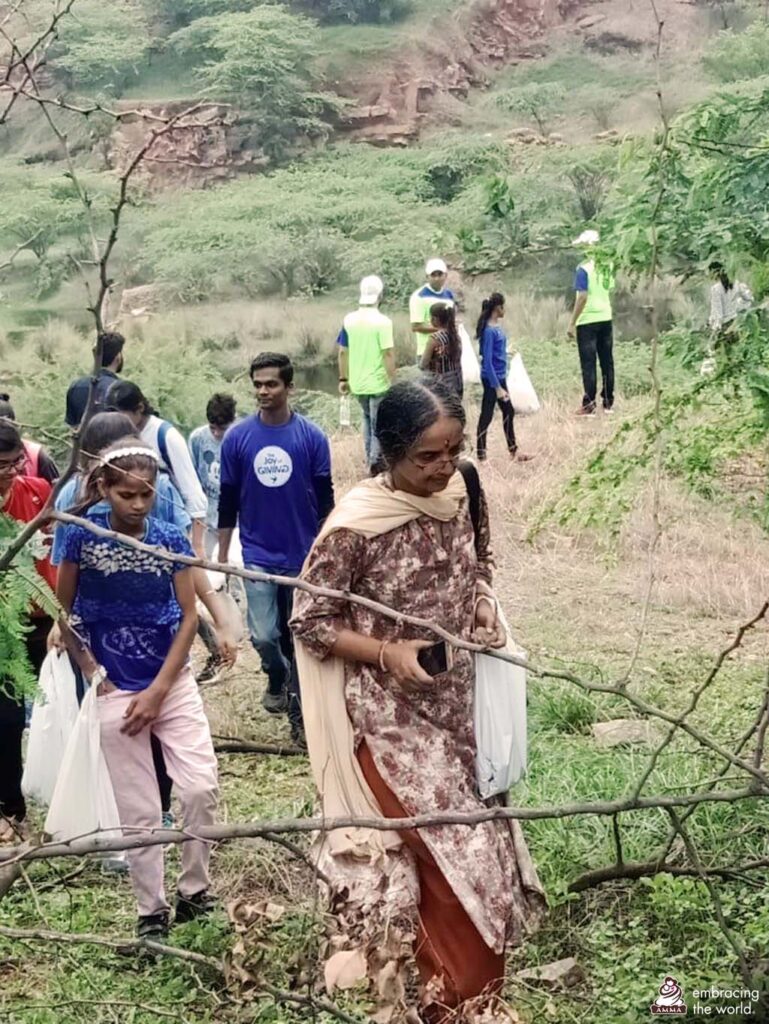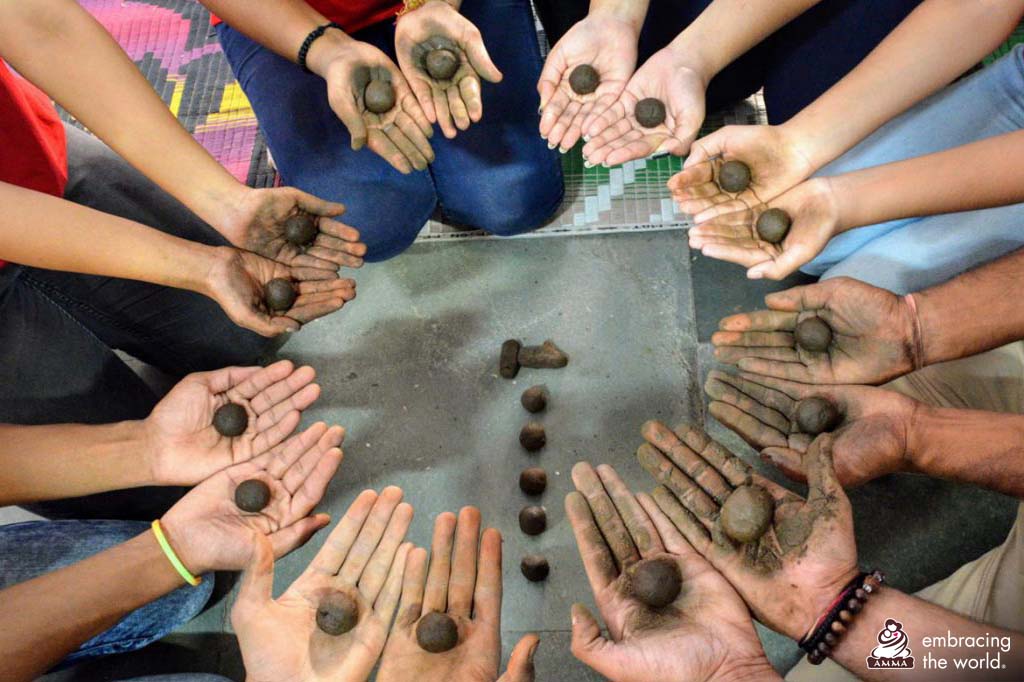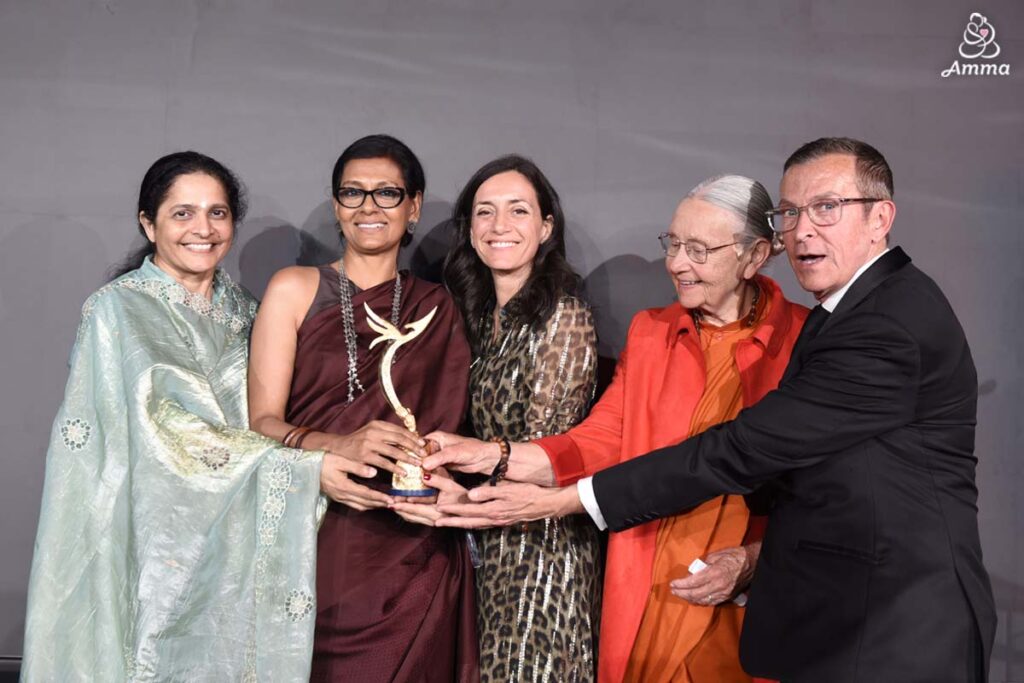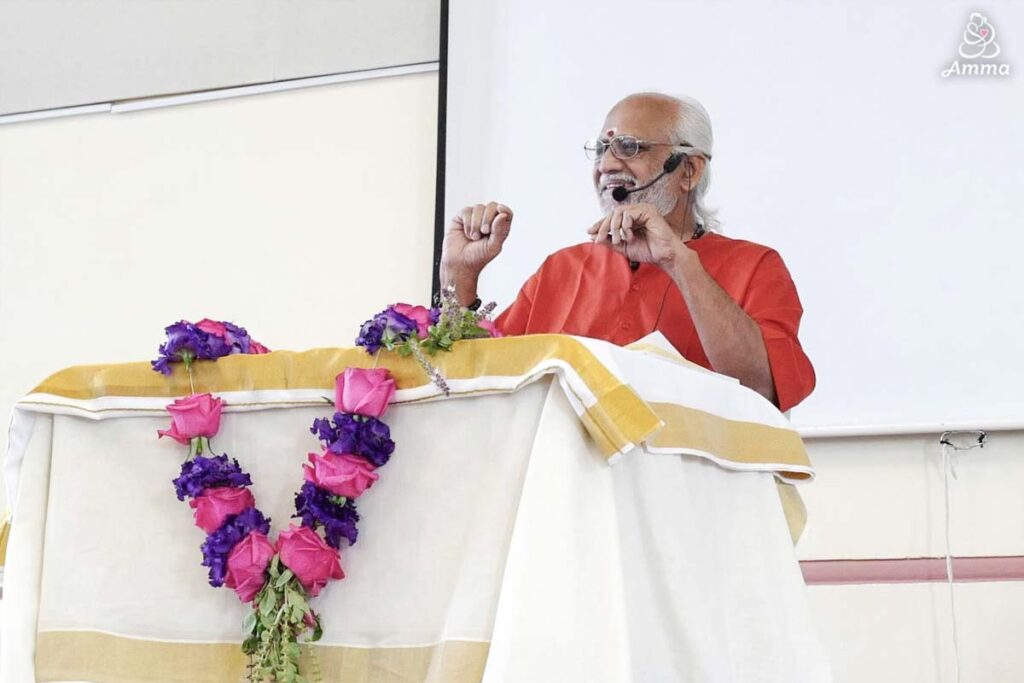In India’s national capital region, hundreds of people gathered to plant more than 100,000 seed balls in the Rajokri and Ghitorni forest areas. According to the World Health Organization (WHO), Delhi is one of the most polluted cities in the world. AYUDH, our youth wing, organized the planting drive as a way to take action for the city’s pollution problem, as well as honor World Nature Conservation Day on July 28th.
The goal was to increase the green cover in the challenging terrains of the local forests, which are full of huge stones and wilderness. The participants, who were from different backgrounds and age groups, spread out in groups and after six hours of intense physical work, they succeeded in planting all seed balls.
“Seed balls are a mixture of soil, compost and plant seeds. They are an easy and sustainable way to cultivate plants and a step towards conserving the natural ecosystem,” explained Br. Nijamrita Chaitanya with AYUDH.
“With the monsoon setting in, these planted seed balls can sprout into trees, resulting in increased green cover, providing oxygen, improving air quality and climate, conserving water, preserving soil and supporting wildlife.”
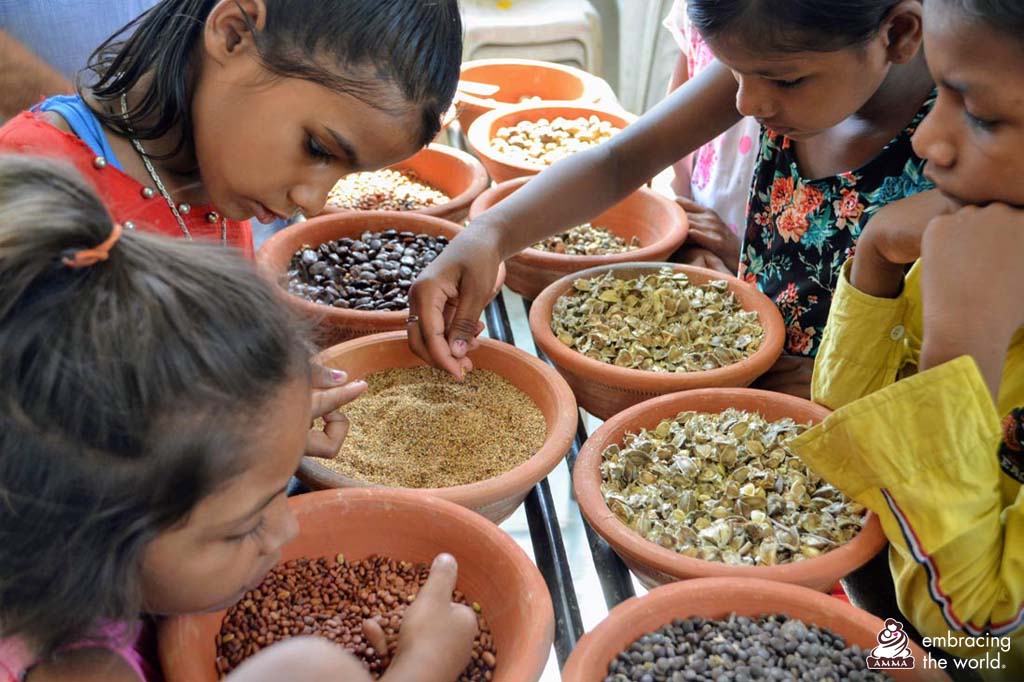
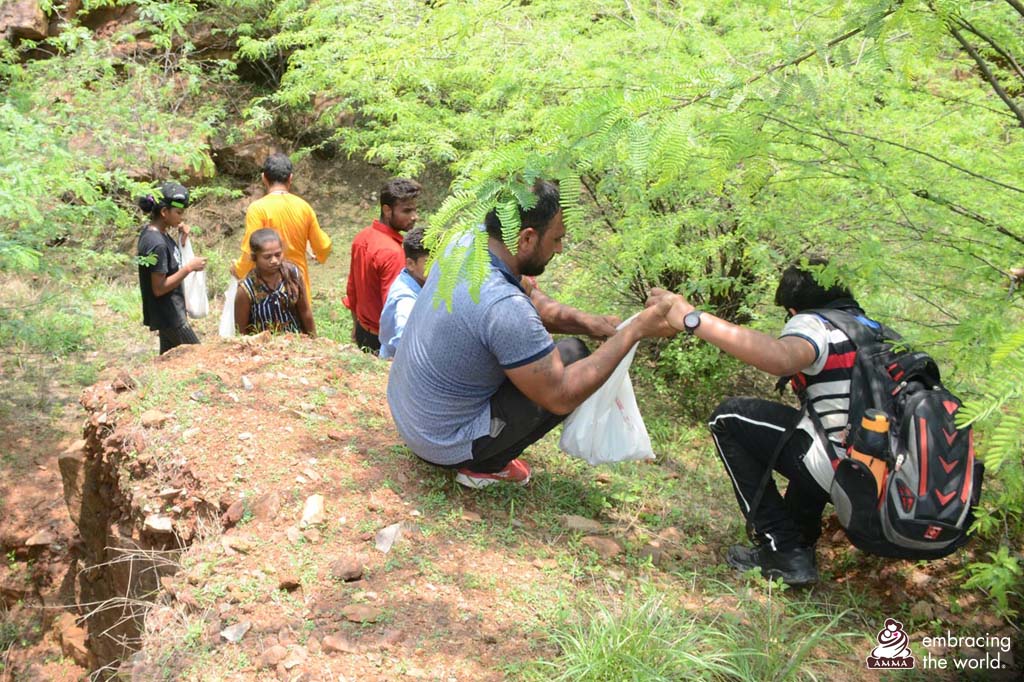
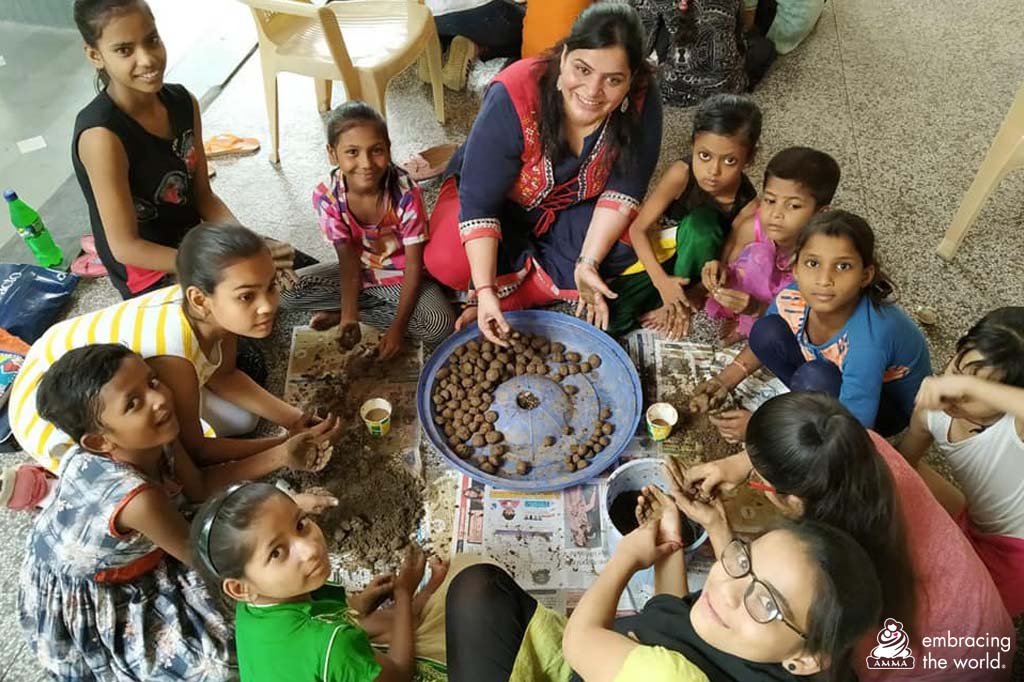
In advance of planting day, many more volunteers spent a month and a half creating the seed balls, which ended up weighing a total of more than three tons. AYUDH Delhi held seed ball workshops across elementary schools and various organizations, including an event with Alliance Air (a subsidiary of Air India).
The massive endeavor also created awareness among the residents of the city about the importance of forests and the value of preserving and planting trees. Many participants shared that the reawakening of this social consciousness has inspired in them a new respect and love for the Earth.
Seed balls, which are also known as seed bombs, are distributed in open, natural spaces. The mud around the seeds protects and nourishes them until rains fall. The seeds then have a good chance to germinate and sprout into trees. Started by Masanobu Fukuoka, the Japanese man famous for popularizing natural farming, the concept has been adopted worldwide.
As a member organization of the United Nations Trillion Tree Campaign, the Mata Amritanandamayi Math has organized the planting of more than a million trees globally. It has also been recognized as an NGO with Special Consultative status to the UN Economic and Social Council (ECOSOC) and now conducts a significant portion of the UN’s work on the ground in India. Meanwhile, AYUDH is working internationally to meet the sustainable development goals (SDGs) put forth by the UN.
“Amma emphasizes the need to protect our Mother Nature. Throughout the world, her centers are working to become local models of sustainable living. Several of our projects and events have been formally recognized by UNESCO as part of Education for Sustainable Development.” said Br. Amit, member of the National AYUDH Coordination Committee.
“At AYUDH, we are committed to protecting the environment, and our members are channeling their energies through sincere efforts. This seed ball plantation drive was the result of such determination, and AYUDH hopes to take many more steps in this direction.”
